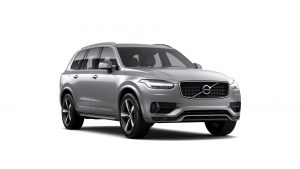 An Arizona pedestrian has been killed by a self-driving Uber car. The pedestrian, Elaine Herzberg, 49, was struck and killed at the intersection of Mill Avenue and Curry Road in Tempe by a Volvo XC90 operating in “autonomous mode”. According to a statement by the Tempe police, the woman was walking her bicycle in the street outside of a crosswalk.
An Arizona pedestrian has been killed by a self-driving Uber car. The pedestrian, Elaine Herzberg, 49, was struck and killed at the intersection of Mill Avenue and Curry Road in Tempe by a Volvo XC90 operating in “autonomous mode”. According to a statement by the Tempe police, the woman was walking her bicycle in the street outside of a crosswalk.
Uber said it had suspended testing of its self-driving cars until further notice. Uber has been testing its self-driving cars in Tempe, Pittsburgh, San Francisco and Toronto. The company says it is fully cooperating with local authorities in the investigation of the incident. Both Volvo and Uber will be analyzing the accident data in the onboard computers. The National Transportation Safety Board has sent investigators to Arizona to gather information about the crash.
The Uber vehicle had a human safety driver at the wheel at the time of the incident. Most current regulations require self-driving cars to have a human driver ready to take over if something goes wrong during testing. Arizona already allows self-driving cars to operate without a driver behind the wheel. California was scheduled to start allowing companies to test autonomous vehicles without anyone behind the wheel in April.
The fatal crash will most likely raise questions about allowing companies to test self-driving cars without a person in the driver’s seat. Autonomous cars are expected to ultimately be safer than human drivers, as synchronized technologies can react faster than humans in an emergency situation. However, the systems have struggled to adjust for unpredictable human driving or behavior.
This case appears to be the first known death of a pedestrian struck by an autonomous vehicle on a public road. An Uber self-driving car was involved in another crash a year ago in Tempe. In 2016, a man driving his Tesla using Autopilot died when it crashed into a tractor-trailer that was crossing the road. Federal investigators cleared Tesla and said there was no product defect in the vehicle related to the crash.
The Tempe accident could establish the first batch of case law for autonomous vehicles. There is virtually no case law established around autonomous driving technology. It will be a challenge for the courts if the victim’s family presses a case of liability.
